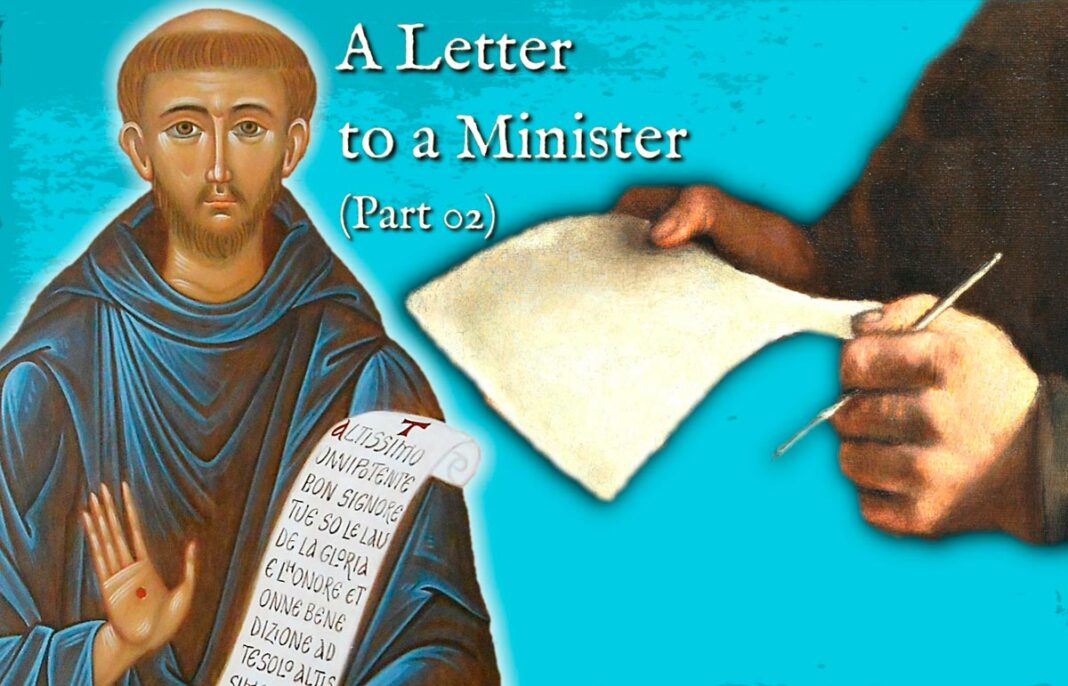Continuing our reflection on A Letter to a Minister, St. Francis writes:
And if you have done this, I wish to know in this way if you love the Lord and me, His servant and yours: that there is not any brother in the world who has sinned—however much he could have sinned—who, after he has looked into your eyes, would ever depart without your mercy, if he is looking for mercy. And if he were not looking for mercy, you would ask him if he wants mercy. And if he would sin a thousand times before your eyes, love him more than me so that you may draw him to the Lord; and always be merciful with brothers such as these. (A Letter to a Minister 9-11; FF 235-6).
Surely, the word that stands out in this paragraph is “mercy.” For St. Francis, mercy is an essential attribute of Divine love[1]. As God has been merciful to us,[2] so too must we be merciful to our suffering, sick, marginalized and sinful brothers. Francis writes:
The Lord gave me, Brother Francis, thus to begin doing penance in this way: for when I was in sin, it seemed too bitter for me to see lepers. And the Lord Himself led me among them and I showed mercy to them. And when I left them, what had seemed bitter to me was turned into sweetness of soul and body. And afterwards I delayed a little and left the world. (Testament 1-3; FF 110).
For St. Francis, “showing mercy” is worth more than a thousand prayers and penances: “And love them in this and do not wish that they be better Christians. And let this be more than a hermitage for you” (A Letter to a Minister 7-8; FF 234).
There is no going back! We are obliged to practice mercy, because Francis uses the verb “to love” in the imperative—“love him.” This is because loving is not an option for St. Francis, it is the answer to the Lord’s commandment[3]. Showing mercy is an obligation.[4].
What is interesting is that this “showing mercy” is not exercised with the use of words. It is first conveyed through the eyes: “Who, after he has looked into your eyes, would ever depart without your mercy.” Two gazes meet—the gaze of the person who must impart mercy (in this case the Minister) and the gaze of the person who needs it. Picture two people, two brothers, who despite everything are able to look each other in the eye. Neither is better or worse than the other because both are sinners[5]. Only those who have experienced forgiveness can gaze with mercy.
Francis invites us to transform our gaze, to see how God looks at us and to love as He loves us: with mercy.
Until the next reflection in commemoration of the 800th anniversary of A Letter to a Minister.
Friar Elio J. ROJAS
[1] Recommended reading: Pope Francis, “The Name of God Is Mercy: A Conversation with Andrea Tornielli,” 2016.
[2] Cf. Admonitions 1; FF 141-145.
[3] “I give you a new commandment: love one another. As I have loved you, so you also should love one another…” (John 13: 34-35).
[4] Cf. C. Vaiani, Storia e teologia dell’esperienza spirituale di Francesco d’Assisi. Fonti e Ricerche, Milan 2013, pp. 214-215.
[5] It is also true that St. Francis is harsh and demanding towards certain friars, even to the point of saying that some of them should be expelled from the Order (cf. Earlier Rule XIII). He also expresses dissatisfaction with those who do not live in obedience, declaring that he does not consider them to be either Catholics or his brothers and that he does not even wish to see or speak with them (cf. A Letter to the Entire Order 44-46; FF 229-230). How can this be understood in the light of A Letter to a Minister? Certainly, St. Francis is merciful with sinners and weak brothers who suffer temptation (cf. 2Cel 118; FF 704), but with those who are corrupt, he is harsh. As Pope Francis would say: “Sinners yes, corrupt no” (cf. Pope Francis, Morning Meditation in the Chapel of the Domus Sanctae Marthae. Sinners yes, corrupt no, Monday, November 11, 2013).









